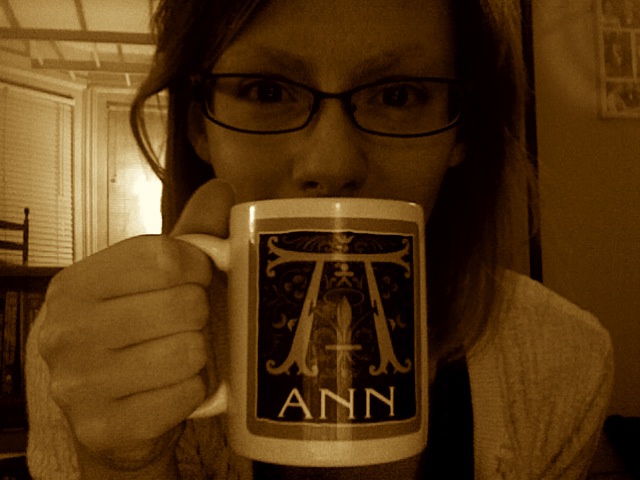I hate wasting my time on grammar. As a student, I rolled my eyes whenever a teacher pointed out a grammatical error. Though I was an English nerd as a student, I was one of those lazy kids who became indignant when a science teacher had the temerity to point out and then — oh horror — take points off my grade for sloppy spelling and grammar. “But this is science, not English,” I would whine. “Grammar isn’t important in science.”
If I could reach back through time and slap myself, I would.
Because grammar is always important. There. I said it. Grammar is important, but despite the fact that I’ve made my living with my ability to put ideas into words, I didn’t really pay grammar much attention for years. I mostly just knew when things I wrote were wrong and when they were right. In fact avoided reading about the rules of grammar until two things happened: 1) I started teaching at the college level 2) I opened a Facebook account.
First let it be noted, I hate grammar.
One of the reasons that I’m all worked up about this is because I feel like I’ve been forced to brand myself a grammarian, when all I want is for people to stop pluralizing by sticking apostrophes to the end of random, innocent nouns.
I don’t want to be a grammarian because I’m not one. I don’t know every rule. I regularly make a fool of myself in Facebook statuses, email and on Twitter. Probably even on this blog. But I feel I have to say something when I see yea used as yeah, and people who fling a handful of commas at every sentence in hopes that one of those commas will end up in the correct place. Commas are not ninja stars, people.
One of the universe’s strangest phenomena.
Here’s something else I hate about paying attention to grammar. My complaining about other people’s errors makes me look like a moron when I make a mistake. And I will make a mistake. Because that is one of the universe’s strangest phenomena: People who point out the grammatical errors of others always make their own grammatical mistakes while they’re critiquing someone else. When I was working for the newspaper, and “helpful” readers would email me to correct a mistake I’d made in an article, there was almost always a spelling error in the email that pointed out my mistake. I’m no different. I will proof this post many times, but an error born of righteous indignation will appear in it. I just know it. (Point the error out in the comments! Think of it as a grammatical game of Where’s Waldo.)
The reluctant grammarian in the classroom.
In past years, several students have said some version of this to me: “It’s not important how I write it. My message is the important thing.”
Right.
Look, our Constitution is properly punctuated. Every holy book for every faith on the planet has been proofed. You can put money down that every advertisement blasted at you has been edited and spellchecked multiple times.
If your message is at least as important as any of the above, it probably deserves to be encrypted in proper grammar.
Here’s what I would like to say to those students, and to anyone who has a message so important that they think it might transcend the rules of basic grammar:
I too would prefer to concentrate on the content of a piece rather than the arrangement of the characters that make it up. But because of your bad grammar I can’t concentrate on the meaning of your piece. Instead, I’m wasting time trying to decipher it. Your precious message might be important. It might be life-changing. But if you don’t take the time to write it down correctly — if your their turns into a there, or if your yeah loses its h, or if you slip into Facebook-speak and use 2 instead of to and ur instead of your — well, then your message might not be taken seriously.
And that brings me to my next point.
The reluctant grammarian on Facebook.
Sometimes it can be painful to read status updates on Facebook.
For the record, I do not think Facebook and Twitter are ruining the English language and making people illiterate. Facebook and Twitter are encouraging literacy because both sites rely on written language. You can’t be illiterate and be on Facebook, so there’s a sort of added social pressure to be able to express yourself in words. And social media has done something else for language: it has made people’s levels of literacy public.
Facebook isn’t killing the written word, it is changing language. All the little abbreviations that pop up on the Internet are headed for spoken conversation. OMG and WTF are being nicely assimilated into our slang as OK was a century ago.
I support all these things. I think social pressure to be literate is awesome. And I think we can only benefit from being exposed to each others’ literacy levels. I love me some vernacular, so I like the idea of acquiring new slang.
But Facebook might just be taking an axe to the rules of grammar. Why? Because capital letters are a hassle to type on a cell phone, maybe, or because if one’s friends aren’t big on spelling, maybe some people don’t feel like they need to be vigilant about their status updates. Or maybe people are just spelling things in their own way because they are beautiful, unique snowflakes and spelling is how they express that uniqueness. (I know one person whose trademark is a double letter on the end of at least one word in every status update, plus an elipses. Example: “my parakeet lovess sushii…” )
Or maybe because it’s just Facebook and therefore unimportant and therefore somehow undeserving of proper grammar, even though so many of us spend so much time online, reading each other’s status updates.
Even though we’re communicating with hundreds of people at a time.
Even though we’re often communicating about the things that are most important to us.
Even though grammar is the boat that allows us to navigate the great sea of written language.
It’s not “just Facebook,” or “just Twitter” or “just an email” or even “just a text.” It’s the way we communicate with each other in today’s society. And if we’re going to be able to understand one another, we’re all going to need to follow some rules.


